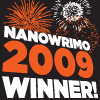On Saturday, October 25th, I attended the 75th Saturday Reunion at Teachers College- Columbia University. The morning keynote was given by James Howe, the author of more than 70 novels, including The Misfits, Bunnicula: A Rabbit-Tale of Mystery, 13: Thirteen Stories That Capture the Agony and Ecstasy of Being Thirteen, Pinky & Rex, and much more.
Howe’s keynote was titled, “Write From the Heart” and was inspirational. Howe was funny, touching, and relevant. One of my favorite quotes was,
…to write from the heart is to open the doors of possibility in you and the reader…
Wow! What a fantastic way to introduce writing to our students! We write for our reader and we write for ourselves. What we write opens new doors for us and for them. When Howe shared these words I was immediately struck by them. I plan to share this with my students tomorrow, along with bringing them up again when we work on the heart door (a la Georgia Heard) in our poetry unit.
My notes from the keynote jump around, so please excuse the stream-of-consciousness aspect of this entry. I want to try and share everything!
Points Made by James Howe:
- children need teachers, teachers need teachers, writers need teachers
- the publishing industry has become filled with concept books, tie-ins, celebrity books, rewritten best sellers. Original, good literature for kids is becoming harder to get published.
- if Howe could design the language arts curriculum for fourth grade, he would spend the year on poetry–> reading and writing it!
- Jim Howe shared a poem that I plan to hang in my classroom tomorrow morning. Short and powerful, Mary Oliver’s Instructions for Living a Life will become a mantra in my class.
Instructions for living a life: Pay attention. Be astonished. Tell about it.
Howe also shared one of his favorite poems, by Marie Howe. His reading brought tears to my eyes. (To read the entire poem, click here)
Johnny, the kitchen sink has been clogged for days, some utensil probably fell down there.
And the Drano won't work but smells dangerous, and the crusty dishes have piled up
waiting for the plumber I still haven't called. This is the everyday we spoke of.
It's winter again: the sky's a deep, headstrong blue, and the sunlight pours through
the open living-room windows because the heat's on too high in here and I can't turn it off.
For weeks now, driving, or dropping a bag of groceries in the street, the bag breaking,
I've been thinking: This is what the living do.
- Fantastic lead paragraph to show kids, one that really opens doors for the reader is from Barbara Park’s Mick Harte Was Here (by the way, love the new cover!)
- first sentences/paragraphs are doors to the world
James Howe said many other wonderful things, but I started to listen more and write less at this point. However, if you ever have the opportunity to see him, I highly recommend it!
Stay tuned for notes from the sessions I attended later this week!
Filed under: professional development | Tagged: teachers college, teachers college reading and writing project | Leave a comment »




